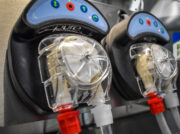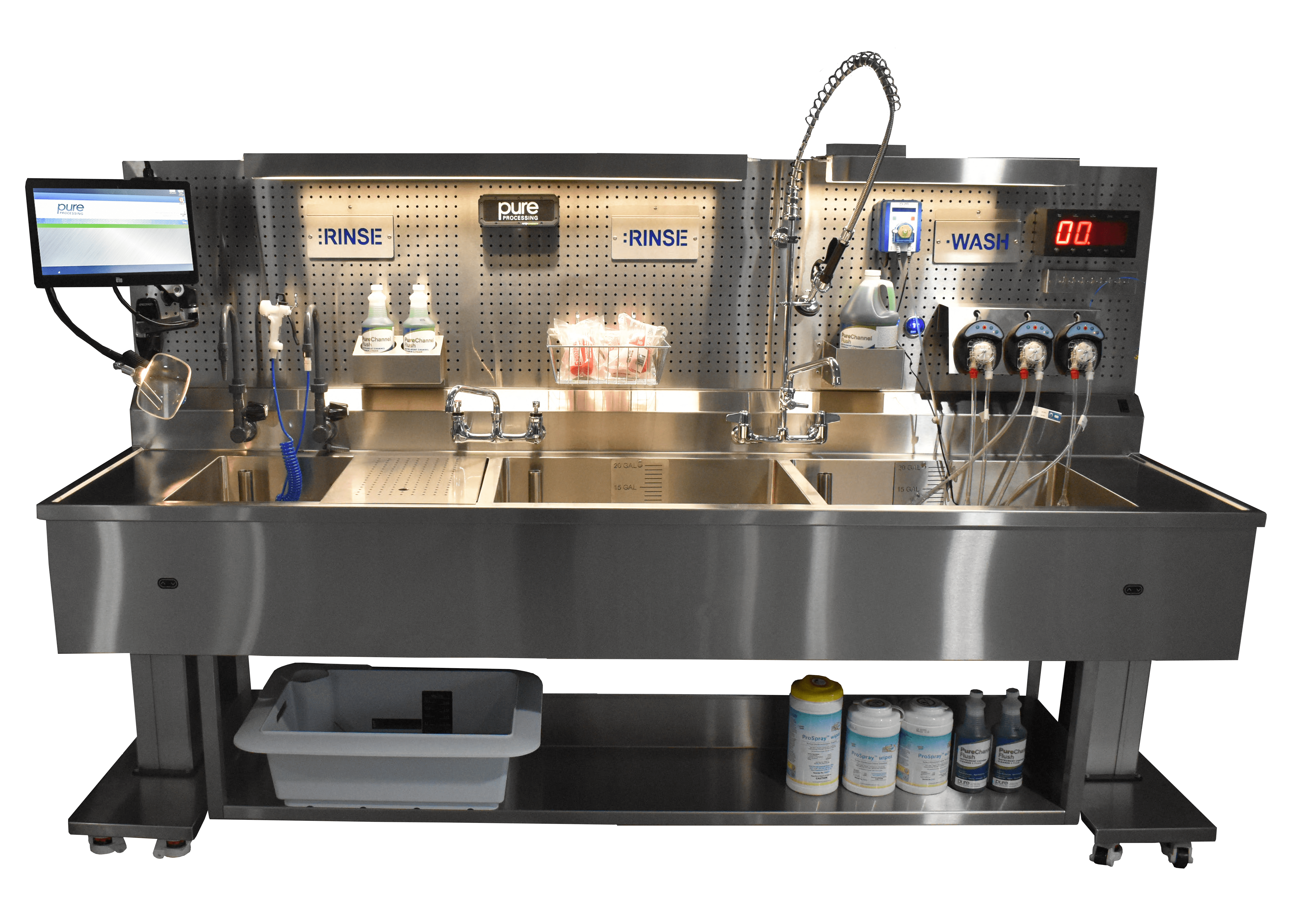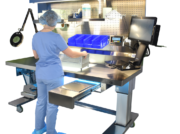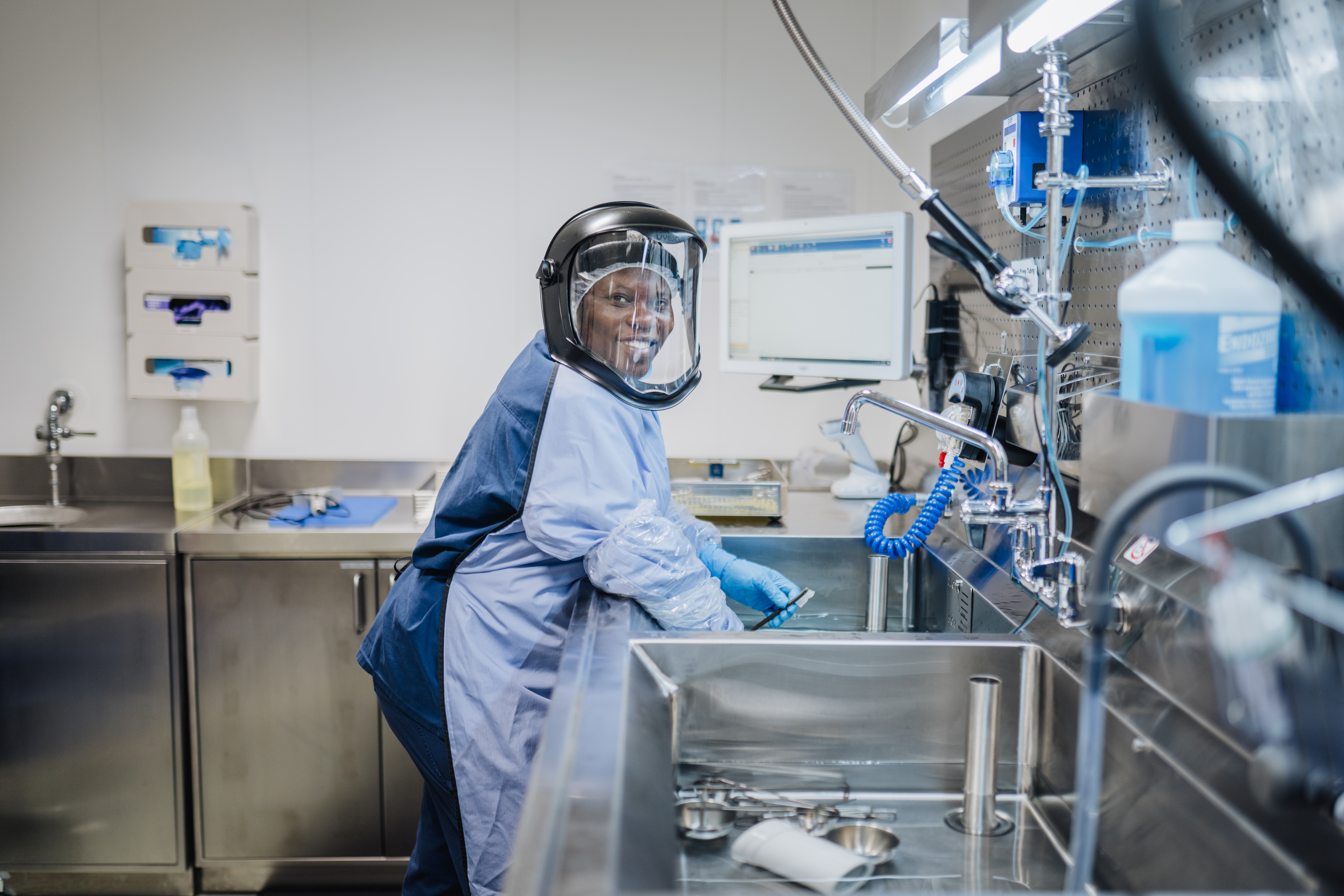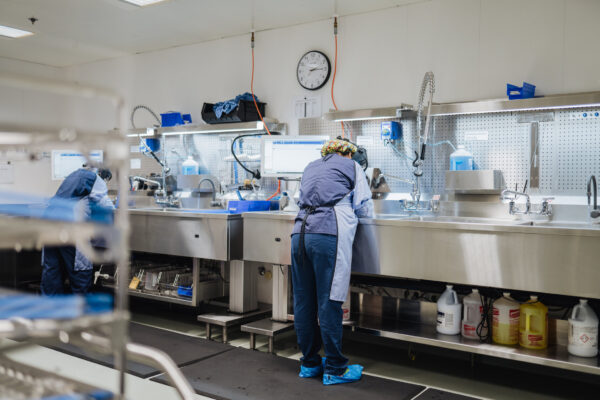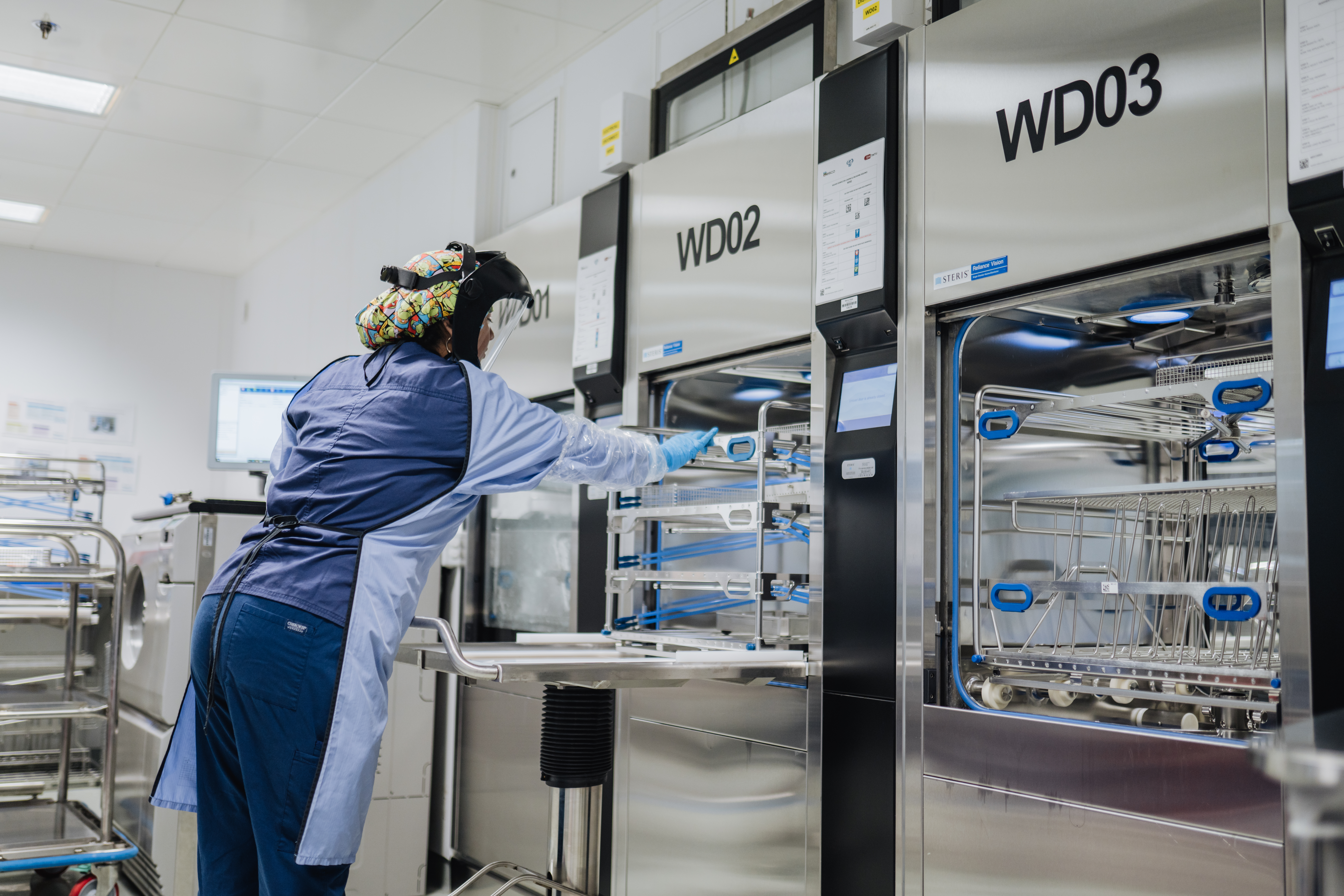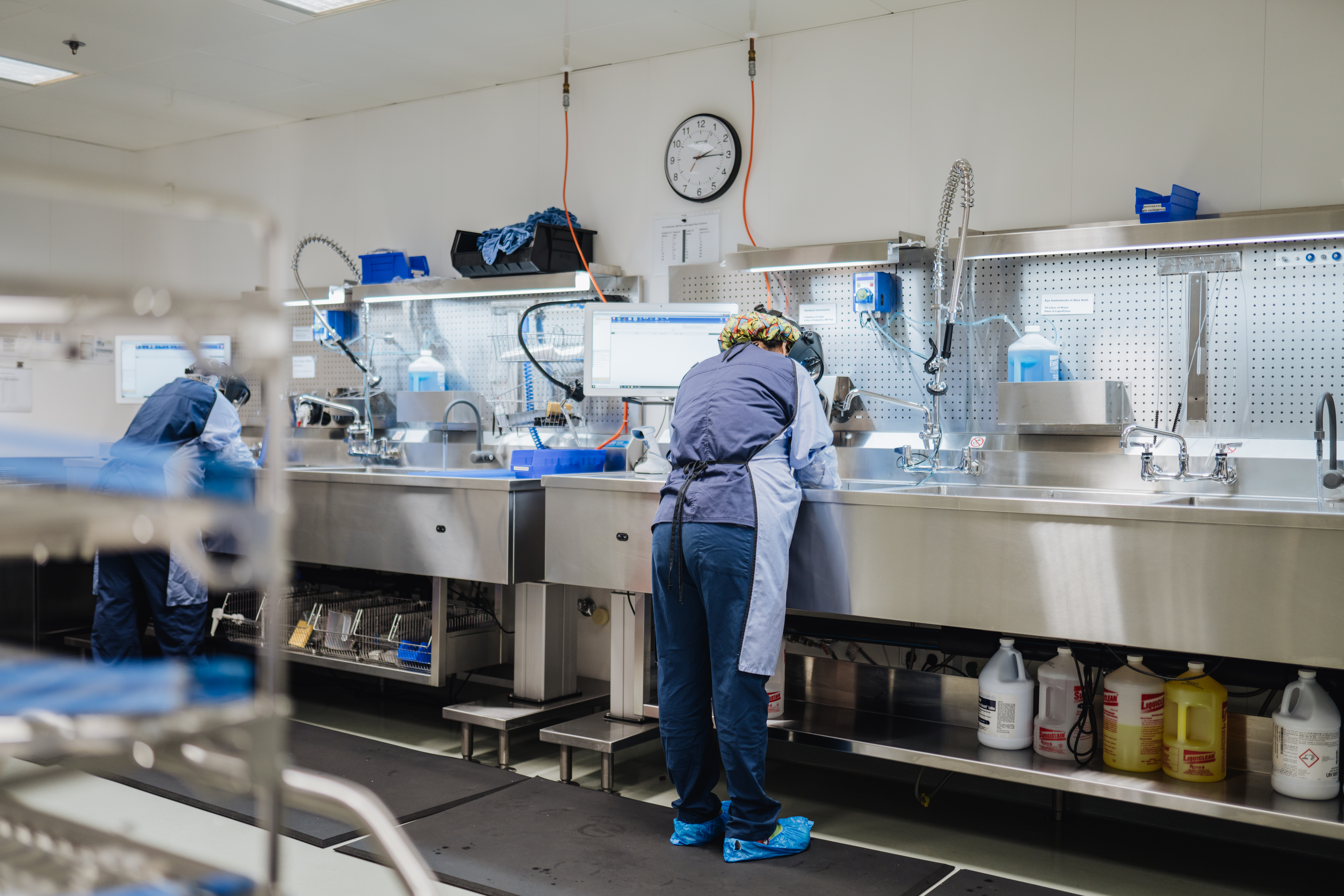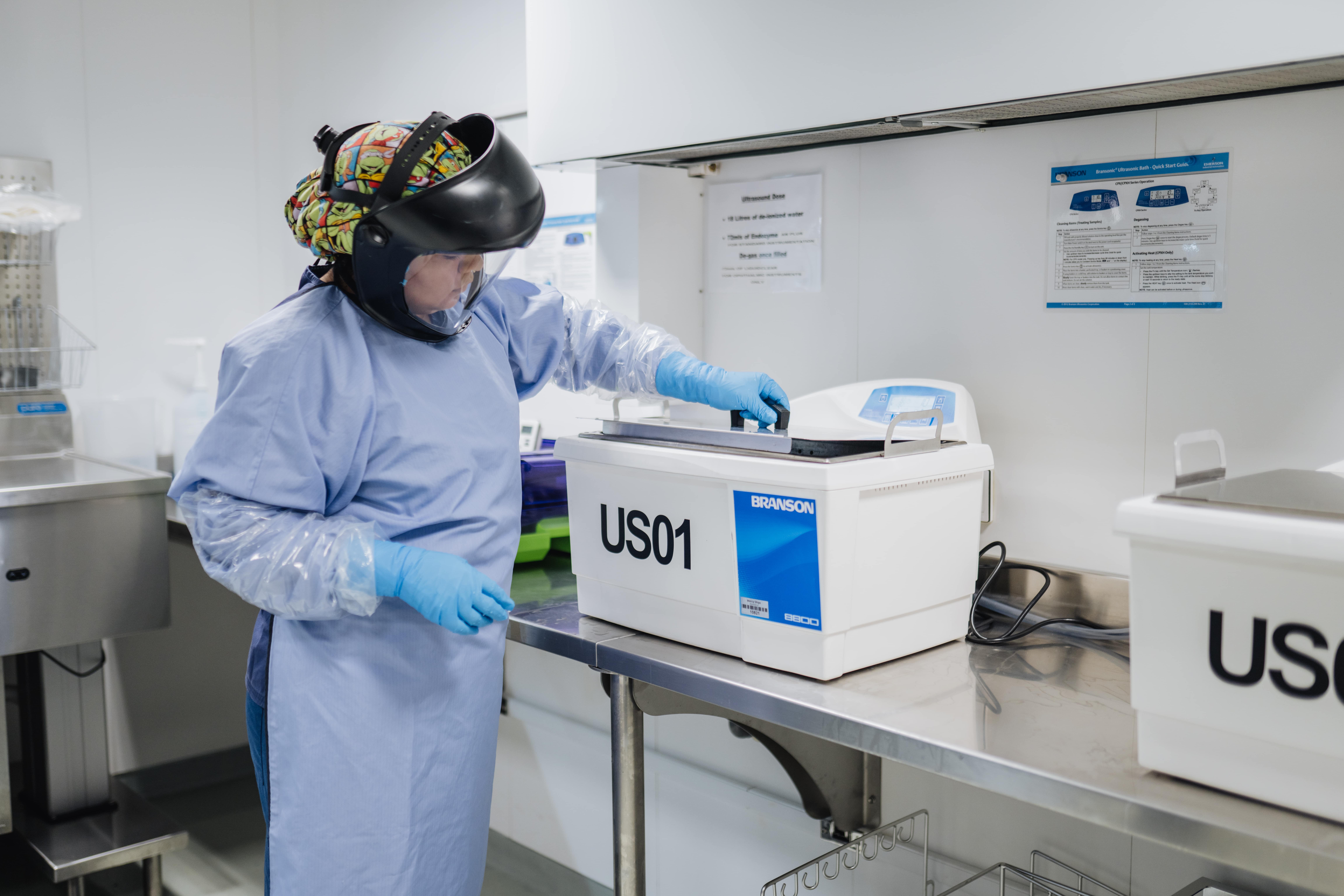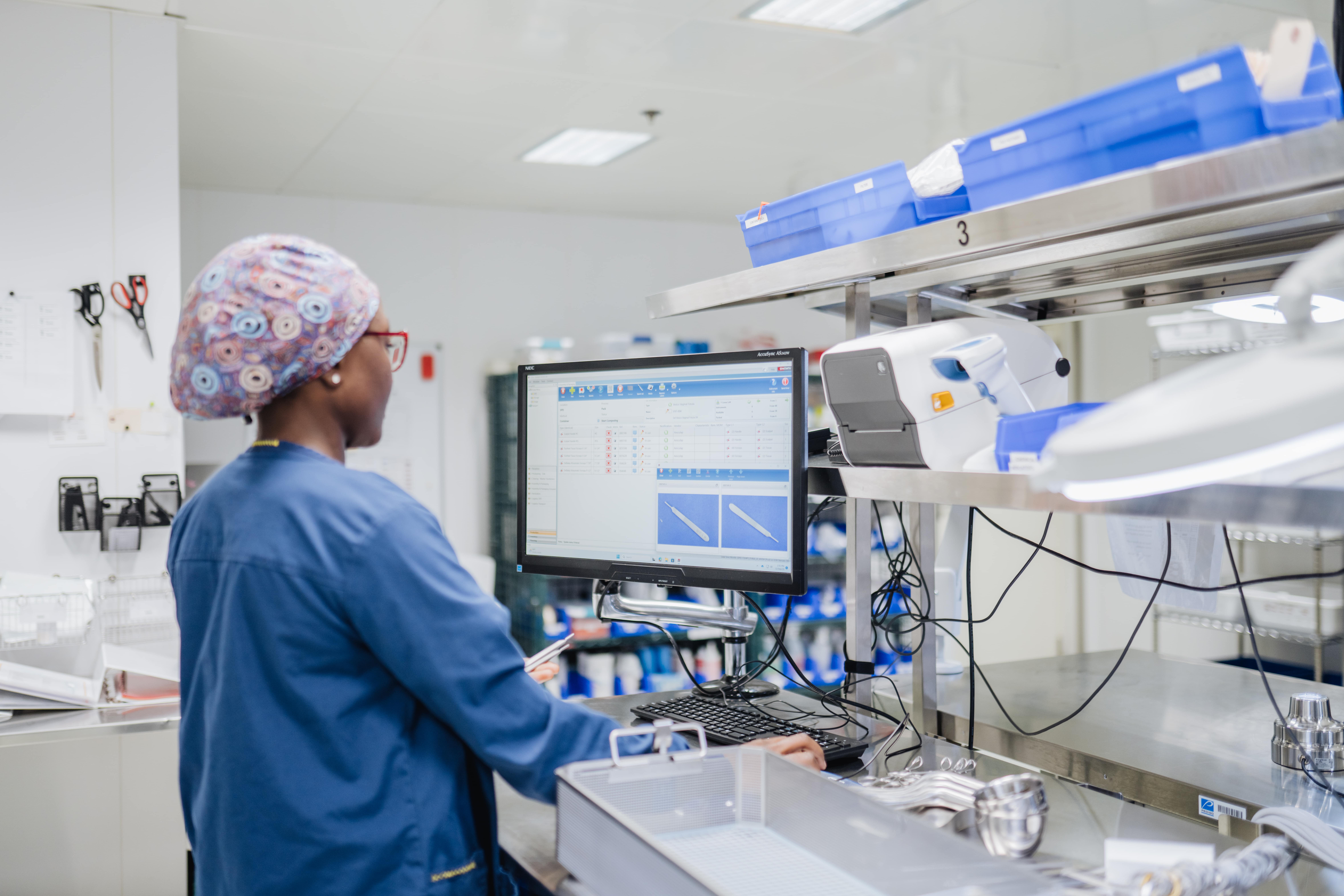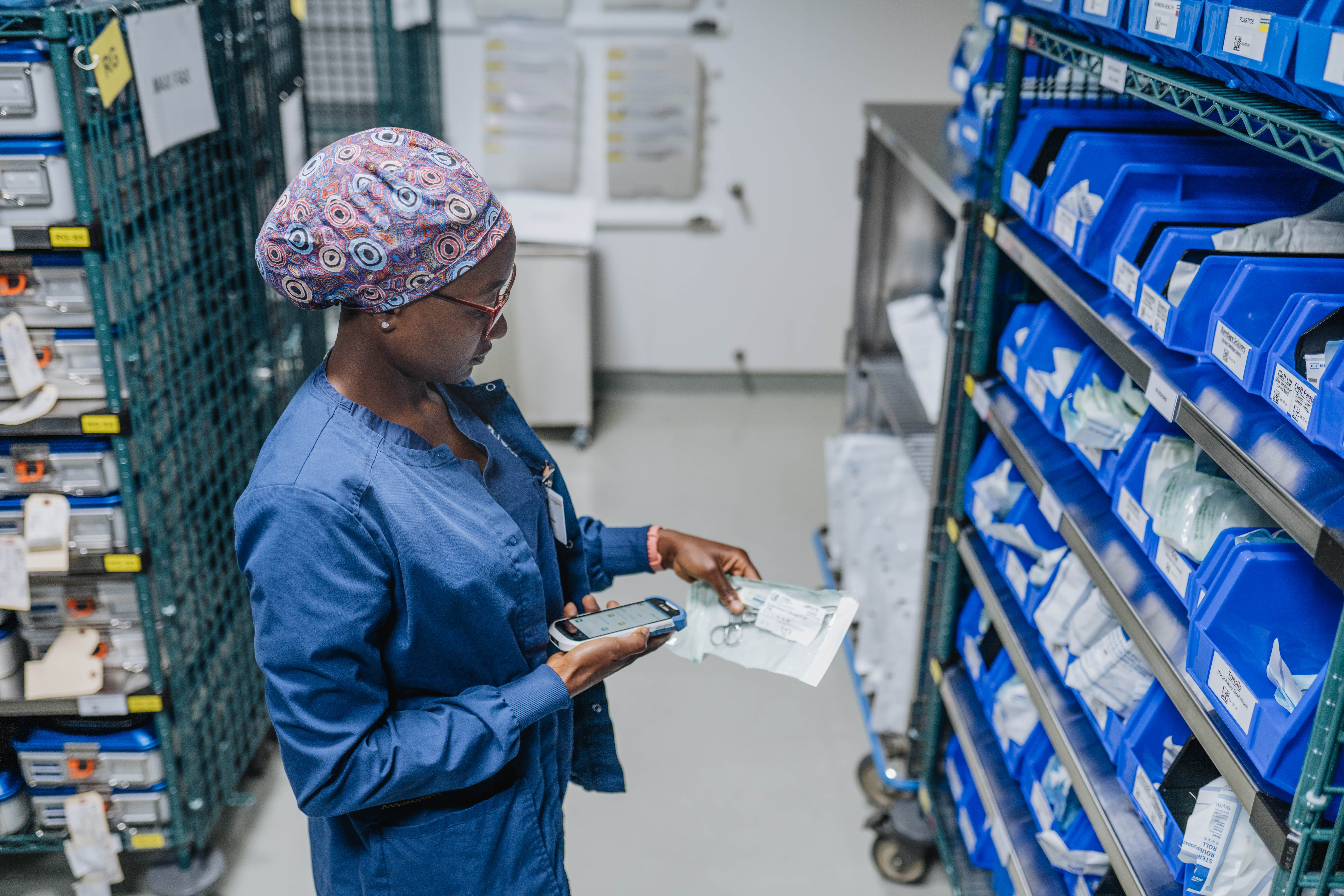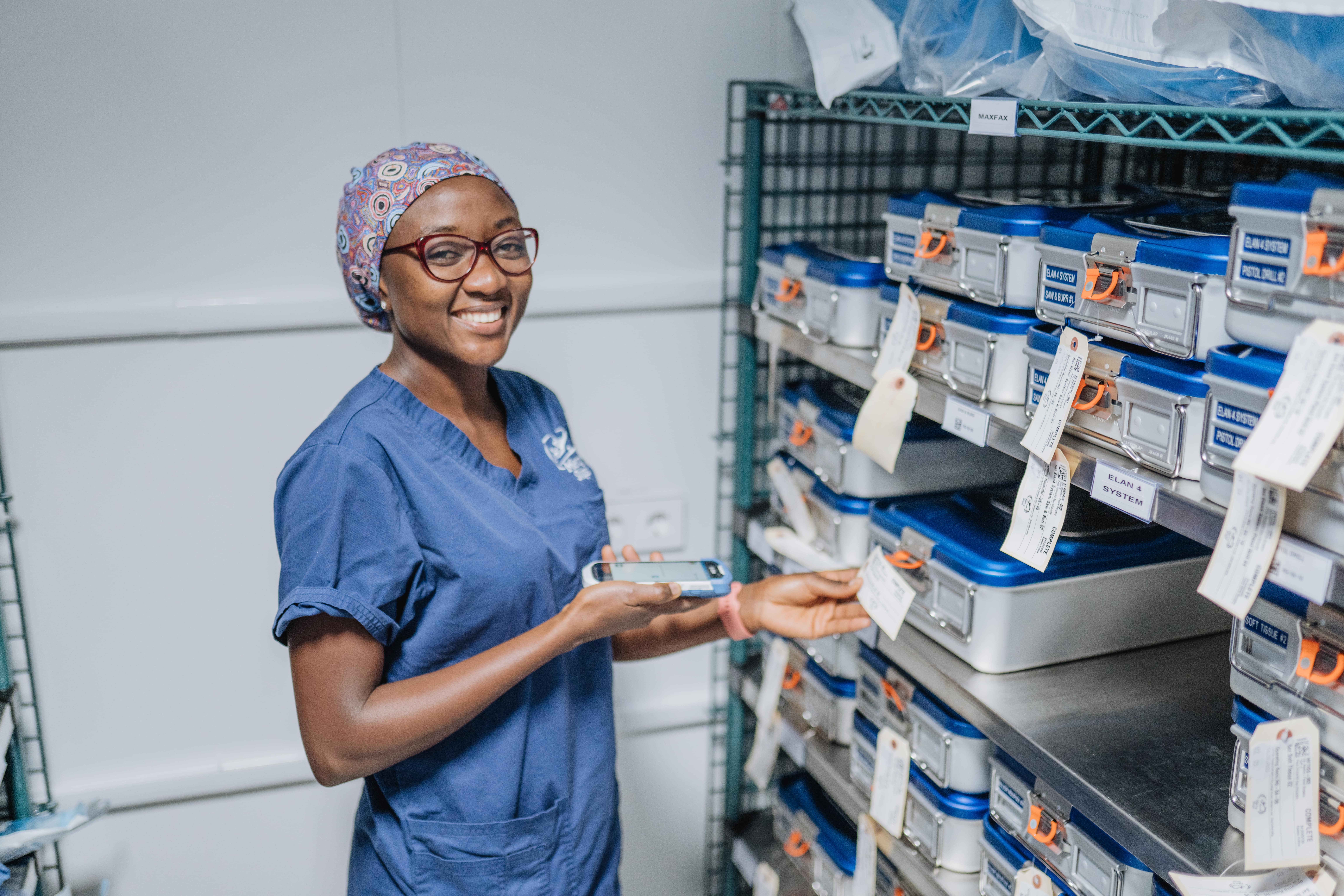
A Sterile Processing Department Without Borders
A Look into the Life of an SPD Tech on the Global Mercy®
For more than 40 years, Mercy Ships™ has provided hope and healing to the world. By deploying a fleet of hospital ships staffed with hundreds of volunteer professionals, ships like the newly minted Global Mercy® can write the stories of children like four-year-old Amadou. Amadou was the first patient to receive surgery on the Global Mercy, receiving corrective procedures to fix a windswept leg and one bowed leg. Today, Amadou can enjoy the same joys of childhood as his peers thanks to the volunteers dedicated to the Mercy Ships mission.
One unsung hero of this remarkable mission? Oliver Etcu, a sterile processing technician from Edmonton, Alberta, Canada. A department manager for over 14 years, Etcu now plays a critical role in delivering care to underserved communities as part of the Mercy Ships sterile processing team.
We have the privilege to interview him and understand the operations in a sterile processing department aboard a ship, docked in overseas waters, staffed by selfless volunteers. Here is a glimpse into his life.
Q: Why did you choose to work on Global Mercy?
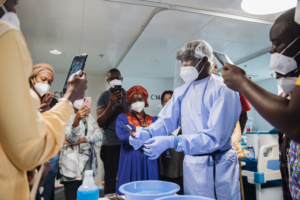
A: “It is a great way to give back; by using the skills and abilities gained over the years in my profession to make a lasting impact and bless those in need. This is also where my previous experience with implementing instrument tracking systems was most needed.”
Q: Tell us about a typical day reprocessing on Global Mercy.
A: “The most common cases will be a bit different in each country; we are trying to meet the greatest need in that region. For example, in Sierra Leone we will not be performing women’s health surgeries as this need is met by a clinic on land.
A typical reprocessing day will be very much like a western land-based department. Thanks to very generous industry partners we were able to outfit the department with similar equipment. The department is open from 0800 – 2200, Monday to Friday, with an on–call schedule during the weekend.
The typical day will start with a team huddle, quality assurance testing of the reprocessing equipment: ultrasonics, washer/disinfectors, heat sealers and sterilizers. Then distribution of reprocessed items and pick-up of soiled items to / from the wards. The bulk of the time is spent reprocessing the operating room instrumentation from 10am until close.”
Q: What makes working on the Global Mercy different than your previous sterile processing roles?
A: “The sense of purpose and calling among the crew, the camaraderie and friendships that are formed. And the short commute to work 😊. [The most rewarding part of my job is ] the ability to live, play and work alongside great professionals from across the globe while fulfilling God’s calling for my life.”
Q: Why did you choose a career in sterile processing? Why do you enjoy working in sterile processing?
A: It’s a long story… at that time it boiled down to the length and cost of education in the field. It’s a decision I never regretted. Also, the ability to work from anywhere. Sterile processing technicians are needed in most facilities where patient care is provided.
Q: What are some of the unique challenges that come with working on a floating hospital?
A: Tight living quarters, tight workspaces, logistics, shipping / supply disruptions.
Q: How can other sterile processing professionals contribute to the mission of Global Mercy, outside of working on the ship?
A: By fundraising and raising awareness among their families, peers and at their facilities.
Want to contribute to the Mercy Ships mission? Consider making a donation today!
Q: How do you work with Sierra Leoneans and the local population? Can you elaborate on the partnerships and teamwork aboard the Global Mercy?
A: We work closely with our Education, Training and Advocacy team that often partners with organizations like SPECT (spectrust.org) to deliver Sterile Processing courses in our host nation. After the completion of the classroom portion of the course we then mentor the participants in our department on the ship. At this link Sterile Processing to Ensure Safe Surgery – Mercy Ships you will find an example of our recent involvement in Dakar, Senegal; we will strive to provide a similar opportunity in Sierra Leone as well.
Insights and Advice
For those considering joining the sterile processing team on a Mercy Ship, our interviewee offered invaluable advice. The impact of your service goes beyond the medical procedures—you also transform your own life. The chance to witness the change in patients’ lives firsthand and to embrace the ship’s culture is an experience that defies the norm.
“Allow yourself to be immersed in the ship and host country’s culture. Take advantage of any opportunity to meet the patients and witness the transformation in their lives firsthand. As Dr. Park said it: ‘What seems like a crazy decision, will be one of the most rewarding and most memorable experiences of your life.’”
Our interviewee left us with one parting comment: “Being involved in meaningful work, building lasting friendships and the opportunity to travel to unique and beautiful locations [is the best part of the Mercy Ships™ team.]”
There are no borders when it comes to access to life-changing care and medicine. The Mercy Ships organization has broken barriers to both healthcare access and education for resident citizens.
Looking to participate in the Mercy Ships program as a sterile processing technician? Learn about the HSPA Foundation’s paid scholarship, here!
Want to learn about the reprocessing sinks used in the Global Mercy’s decontamination department? Learn more here!
